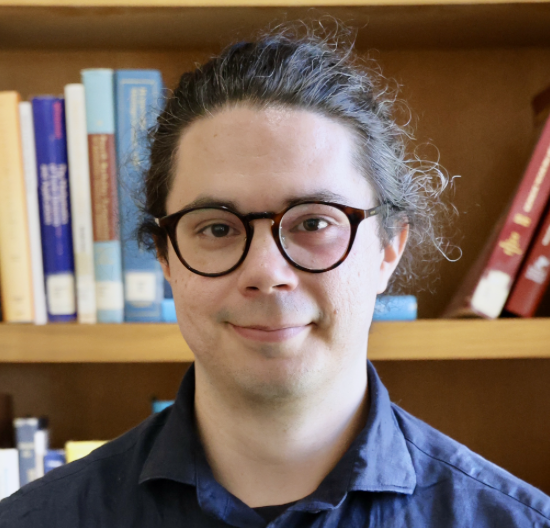Past Event: Babuška Forum
Joar Bagge, Postdoctoral Fellow, Oden Institute, UT Austin, Postdoctoral Fellow, Oden Institute, UT Austin
10 – 11AM
Friday Oct 27, 2023
POB 6.304 & Zoom
Boundary integral methods form a promising alternative to traditional finite difference or finite element methods for solving certain elliptic partial differential equations (PDEs). In microscale fluid flows, these methods can be used to simulate, e.g., swimming microorganisms, blood cells, or suspensions of microfibers. By reformulating the governing PDE as a boundary integral equation defined on a set of surfaces, the dimensionality of the problem is reduced (e.g., from three to two dimensions). In this talk, I will outline some active research topics in boundary integral methods.
In the first part of the talk, I will introduce the boundary integral formulation and the topic of singular numerical integration. The integrands appearing in the formulation are singular, which renders standard methods of numerical integration, such as the trapezoidal rule, ineffective. Instead, specialized methods of integration must be developed, often based on approximation tools such as series expansions or interpolation. I will explain the idea behind some of these special methods and present numerical results.
The second part of the talk is devoted to fast summation methods. These methods are needed in order to efficiently apply boundary integral methods to large computations, since the integral operators are global, i.e., every discretization point will communicate with every other point. Fast summation methods accelerate the computations by separating source points from target points. Here, I will focus on Ewald summation methods, in which information from sources to targets are transmitted by a uniform grid via the fast Fourier transform. I will give an overview of the ideas and present some numerical experiments.
This is recent work done during my PhD in collaboration with Anna-Karin Tornberg, Davood Saffar Shamshirgar and Ludvig af Klinteberg. If time permits, I will also give an outlook on the projects I will be working on at the Oden Institute.
Joar obtained his PhD in Applied and Computational Mathematics from KTH Royal Institute of Technology, Stockholm, Sweden, in 2023. He worked on special quadrature methods and fast summation methods with applications to boundary integral equations and Stokes flow, under the supervision of Prof. Anna-Karin Tornberg.
Joar joined the Oden Institute in September 2023, to work with Prof. George Biros and Prof. Gunnar Martinsson.
Joar's research interests include:
